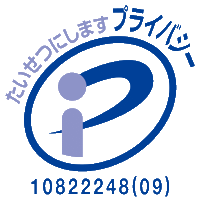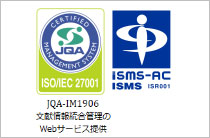ホームIMICライブラリMMWR抄訳2015年(Vol.64)PCV13ワクチンとPPSV23ワクチンとの間隔:・・・
2015/09/04Vol. 64 / No. 34
MMWR64(34):944-947
Intervals Between PCV13 and PPSV23 Vaccines: Recommendations of the Advisory Committee on Immunization Practices (ACIP)
PCV13ワクチンとPPSV23ワクチンとの間隔:Advisory Committee on Immunization Practices(ACIP)の推奨
アメリカでは、現在、13価肺炎球菌結合ワクチン(PCV13)および23価肺炎球菌ポリサッカライドワクチン(PPSV23)の2つの肺炎球菌ワクチンが承認されている。Advisory Committee on Immunization Practices(ACIP)は、過去に肺炎球菌ワクチンを接種していないすべての65歳以上の成人と基礎疾患があり肺炎球菌性疾患に対してハイリスクの2歳以上の人を対象に、PCV13を接種し、その後、PPSV23接種することを推奨している。推奨されるPCV13とPPSV23との接種間隔は、年齢、リスク、接種される2つのワクチンの順番により異なる。2014年8月時点で、ACIPは65歳以上の免疫正常者にはPCV13の接種後6~12カ月後にPPSV23を接種することを、すでにPPSV23を接種した65歳以上では、次のPCV13の接種はPPSV23接種後1年以上経過後に実施することを推奨していた。また免疫不全状態、機能的または解剖学的無脾症、脳髄液漏出、人工内耳の65歳以上を含め、2歳以上のハイリスクの人では、PCV13とその後のPPSV23の間隔は8週以上を推奨していた。ACIPは、65歳以上の免疫正常者において、ワクチン投与の順番により推奨投与間隔が異なる複雑さを解消するために、投与間隔の推奨の根拠となるエビデンスを検討した。免疫正常の成人におけるPCV13とその後のPPSV23投与の研究から、1)短期間の投与間隔(8週など)は長期間と比較して局所の反応原が増加する可能性があり、2)長期間の投与間隔(1年以上など)は、PCV13 またはPPSV23の単独投与と比較して両方の血清型に対する免疫反応の改善が誘導される可能性が示唆された。さらに、65歳以上の免疫正常者のPCV13と続くPSV23の推奨される間隔を1年以上に変更することは、ワクチン接種の順番にかかわらず推奨される投与間隔が同じとなる。以上のことから、2015年6月25日にACIPは、65歳以上の免疫正常者に対するPCV13と続くPPSV23の接種間隔の推奨期間を6~12カ月から1年以上へ変更した。2つのワクチンは同時投与してはならず、もし、PPSV23の投与が何かの事情で推奨される間隔よりも早まった場合、繰り返しの投与は必要ない。その他のすべての年齢およびリスクグル―プでは推奨される間隔に変更はない。
References
- Tomczyk S, Bennett NM, Stoecker C, et al. Use of 13-valent pneumococcal conjugate vaccine and 23-valent pneumococcal polysaccharide vaccine among adults aged ≥65 years: recommendations of the Advisory Committee on Immunization Practices (ACIP). MMWR Morb Mortal Wkly Rep 2014;63:822–5.
- CDC. Use of 13-valent pneumococcal conjugate vaccine and 23-valent pneumococcal polysaccharide vaccine for adults with immunocompromising conditions: recommendations of the Advisory Committee on Immunization Practices (ACIP). MMWR Morb Mortal Wkly Rep 2012;61:816–9.
- CDC. Use of 13-valent pneumococcal conjugate vaccine and 23-valent pneumococcal polysaccharide vaccine among children aged 6–18 years with immunocompromising conditions: recommendations of the Advisory Committee on Immunization Practices (ACIP). MMWR Morb Mortal Wkly Rep 2013;62:521–4.
- Nuorti JP, Whitney CG. Prevention of pneumococcal disease among infants and children—use of 13-valent pneumococcal conjugate vaccine and 23-valent pneumococcal polysaccharide vaccine— recommendations of the Advisory Committee on Immunization Practices (ACIP). MMWR Recomm Rep 2010;59(No. RR-11):1–18.
- Greenberg RN, Gurtman A, Frenck RW, et al. Sequential administration of 13-valent pneumococcal conjugate vaccine and 23-valent pneumococcal polysaccharide vaccine in pneumococcal vaccine-naïve adults 60–64 years of age. Vaccine 2014;32:2364–74.
- Musher DM, Rueda AM, Nahm MH, Graviss EA, Rodriguez-Barradas MC. Initial and subsequent response to pneumococcal polysaccharide and protein-conjugate vaccines administered sequentially to adults who have recovered from pneumococcal pneumonia. J Infect Dis 2008;198:1019–27.
- Blum MD, Dagan R, Mendelman PM, et al. A comparison of multiple regimens of pneumococcal polysaccharide-meningococcal outer membrane protein complex conjugate vaccine and pneumococcal polysaccharide vaccine in toddlers. Vaccine 2000;18:2359–67.
- Goldblatt D, Southern J, Andrews N, et al. The immunogenicity of 7-valent pneumococcal conjugate vaccine versus 23-valent polysaccharide vaccine in adults aged 50–80 years. Clin Infect Dis 2009;49:1318–25.
- Jackson LA, Gurtman A, van Cleeff M, et al. Influence of initial vaccination with 13-valent pneumococcal conjugate vaccine or 23-valent pneumococcal polysaccharide vaccine on anti-pneumococcal responses following subsequent pneumococcal vaccination in adults 50 years and older. Vaccine 2013;31:3594–602.
- Miernyk KM, Butler JC, Bulkow LR, et al. Immunogenicity and reactogenicity of pneumococcal polysaccharide and conjugate vaccines in Alaska native adults 55–70 years of age. Clin Infect Dis 2009;49:241–8.
- Lazarus R, Clutterbuck E, Yu LM, et al. A randomized study comparing combined pneumococcal conjugate and polysaccharide vaccination schedules in adults. Clin Infect Dis 2011;52:736–42.
- Macintyre CR, Ridda I, Gao Z, et al. A randomized clinical trial of the immunogenicity of 7-valent pneumococcal conjugate vaccine compared to 23-valent polysaccharide vaccine in frail, hospitalized elderly. PLoS One 2014;9:e94578.
- de Roux A, Schmöle-Thoma B, Siber GR, et al. Comparison of pneumococcal conjugate polysaccharide and free polysaccharide vaccines in elderly adults: conjugate vaccine elicits improved antibacterial immune responses and immunological memory. Clin Infect Dis 2008;46:1015–23.
- CDC. Active bacterial core surveilance (ABCs). Atlanta, GA: US Department of Health and Human Services, CDC; 2013. Available from: <http://www.cdc.gov/abcs/reports-findings/survreports/spneu13.html>.
- Blackwell DL, Lucas JW, Clarke TC. Summary health statistics for US adults: national health interview survey, 2012. Vital Health Stat 10 2014;10:1–161.
- Centers for Medicare and Medicaid Services. Modifications to Medicare part B coverage of pneumococcal vaccinations. Washington, DC: Department of Health and Human Services, Centers for Medicare and Medicaid Services; 2014. Available at <https://www.cms.gov/Outreach-and-Education/Medicare-Learning-Network-MLN/MLNMattersArticles/Downloads/MM9051.pdf>.
- Feikin DR, Elie CM, Goetz MB, et al. Randomized trial of the quantitative and functional antibody responses to a 7-valent pneumococcal conjugate vaccine and/or 23-valent polysaccharide vaccine among HIV-infected adults. Vaccine 2001;20:545–53.
- Lesprit P, Pédrono G, Molina JM, et al. Immunological efficacy of a prime-boost pneumococcal vaccination in HIV-infected adults. AIDS 2007;21:2425–34.
Copyright © 2013 International Medical Information Center. All Rights Reserved.












